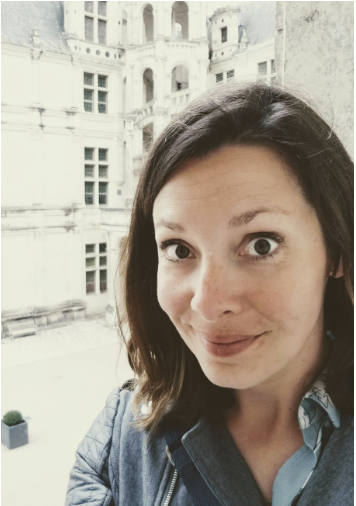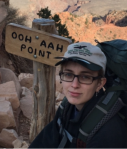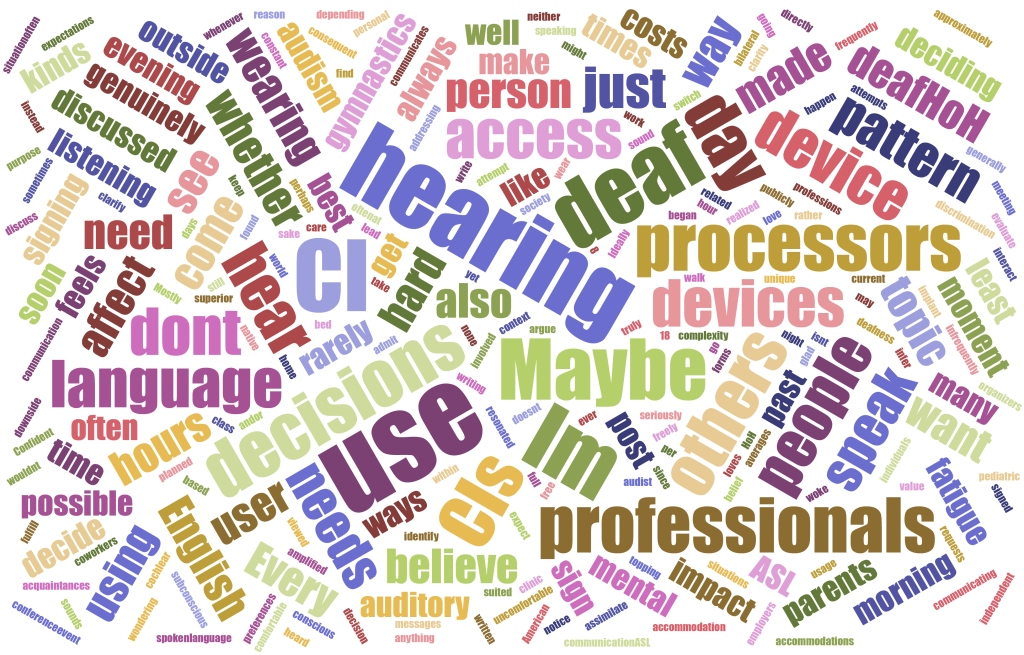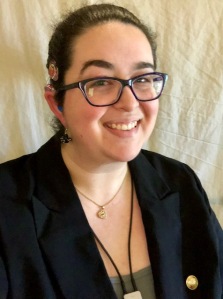
–Hi there. I’m Sara, and I’m almost deaf.
As folks with hearing loss, we have been trained to speak clearly so that we mask our deafness and can be accepted to be as capable as the hearing. While people associate academic brilliance and intelligence with eloquent elocution, we know that this correlation isn’t true. Linguistic bias exists.
The recent social narrative surrounding President Biden’s stuttering reminds me of The King’s Speech in which Colin Firth plays a tortured King George VI dealing with the emotional rollercoaster only a profound stutter and pressure of public speaking could bring. To me, speaking eloquently seemed like an impossible request. Of course, Firth does so in a crescendo-like, climactic, Oscar-winning performance that had me rolling my eyes. But it also made me all warm and fuzzy inside. I do understand the rewards of accomplishing the task, but is it all worth the physical, mental, and emotional stress?
Is eloquence overrated?
Literacy abilities are equated with intelligence: both what kinds of literacies we have and the expressions of those literacies. This is problematic. For example, Standardized White English is reinforced as the societal norm in classrooms, the media, on exams, in cultural narratives; consequently the “good” English speaker is centered in the academic sphere – the person who is articulate, eloquent, and has native or near-native English fluency – marginalizing a vast swath of experiences.
Below are reflections from two deaf The Mind Hears readers that capture the emotional and mental tension of performative eloquence. Their experiences also honor, in a small way, the progress we can make towards a broader and more inclusive definition of what it means to be articulate.

Sara Halpern
The Ohio State University, Modern Jewish & European History
Hello, I’m Sara – without an H, thanks — and I was born profoundly deaf in 1985. I learned language through lipreading for the first four years of my life. I still missed out a lot because I was not overhearing conversations or listening to Sesame Street (I liked Mr. Rogers better; at least I could read his lips). Once I was implanted in 1989, there was a period of intense audio therapy before I started kindergarten. Then I continued with speech therapy until I graduated from high school in 2004. While those therapies are no longer part of routine, my mishandling of the spoken and written English language haunted me throughout college and early years of graduate school.
Like Sara, I internalized that the notion of articulateness, including a strong grasp of my native language, signified intellectual intelligence. I received this messaging when I had to take all those standardized exams, including from the Department of Education and College Board (including AP and GRE), where the rubrics were clear. Phrases such as “well written” and “sophisticated thinking” confounded me. I knew I was smart; I read well above my grade level but somehow I could not spout the “right” words or formulate sentences that could make sense to others.
My own speech pattern further hampered my ability to deliver the way people like the Obamas or George Clooney could. I hated public speaking of any sorts because they were always graded on my ability to speak clearly, pronounce every word correctly, and slow down. Coming from a family of New Yorkers with their rapid fire conversations, it hurt me that I was not allowed to blend in my own family either. Where was I supposed to fit in within the educated, middle-class American ideal of “articulateness” and get an A+ in that?
All that changed when I went abroad to study German and Hebrew and research in various countries where English was not the native language or where English accents were different from my own (Australia and the UK in this case). I found that no one cared how I spoke so as long as I was understandable, which meant slowing down and pronouncing words clearly as they were doing. Since I was doing the same in German and Hebrew, this practice eventually influenced how I spoke English. Every time I returned to the United States, I carried this practice with me and native English speakers responded more positively than before. (Still, every now and then, I get asked if I’m from Germany…)
After these experiences, I have more or less given up striving to fit ideal standards as imagined by bureaucrats in the Department of Education and the College Board, because we are living in a globalized world where English is the most widely used language, spoken in diverse manners. We are all intelligent but in our own unique ways.

Alma C. Schrage
University of Illinois Champaign-Urbana, Natural Resources and Environmental Science
I feel like deaf/HoH folks get socialized early to fit in, to pass, because often the reaction if we say “what?” is being treated as if we are not intelligent…which is kind of a double bind because we can get stuck in situations where we have no idea what is going on and get caught in it.
When I started high school, I joined Model UN because a friend was in it and I wanted to prove I could do it. I had to rely on my partner to relay what everyone was saying. There wasn’t a whole lot of time to communicate, so often she would say “Talk about this issue and why it’s bad because –” That worked fine because I was comfortable ad libbing, and it actually went really well — we got an honorable mention, which was kind of amazing with it being our first conference. But at the same time the award felt kind of empty — it felt like I was just a mouthpiece and not making any of the decisions or critical thinking because I wasn’t receiving the information I needed to do so. I had a mind and was looking for conversation and reciprocity, not empty, performative acts of speaking so the experience was frustrating. I quit after that first conference. Ironically my hearing friend and debate partner was really angry about me quitting – the fact that it was inaccessible didn’t really seem to register with them.
The isolation and lack of access that I experienced as child and teenager because of my good speech is part of what pushed me towards learning American Sign Language (ASL) as an adult: It supported the conversation and connection that I craved, both with signing deaf communities and deaf mentors, but also with the hearing communities I interact with through my advocacy, my work, and going about my daily life. If you sign, people immediately get it — Oh, she’s deaf — and they are more willing to do things like write stuff down or use gestures for basic communication. I’ve found that as an English and ASL user it has been easier to get hearing academics to think more concretely about accessibility and inclusion, which is desperately lacking in academia. Signing has also made me a better self-advocate when I do speak; my experiences with signing Deaf mentors has pushed me to be more assertive and less patient with hearing attitudes and behaviors that are inaccessible or blatantly discriminatory.
Because of the intersections of my privilege — being a white academic — and my particular deaf experience – having reading as my primary access point to language and learning, plus clear speech – I’ve largely been able to dodge people’s prejudices about speaking “good English” and intelligence. The flipside of that coin has been how it renders my deafness invisible. My speech has often fooled hearing people into thinking I understand more than I do; how could a person profoundly deaf speak so well?
A Way Forward
As we wrote this together and I read about Sara and Alma, one theme became clear: spaces such as The Mind Hears where we can converse are small but integral to understanding the deaf experience beyond ourselves. Adapting to adaptations while being unexpectedly advantageous or savvy feels ironic, but listening, really listening to others’ narratives can offer new ideas for advocacy.
Sara Heaser is a Lecturer of English at the University of Wisconsin La Crosse, where she specializes in basic/co-requisite and first-year writing curriculum, pedagogy, and program development. Her writing about teaching has been featured on the Bedford Bits blog, the Journal of the Scholarship of Teaching and Learning, and Composition Studies. Her favorite aspects of her job are mentoring undergraduate education students and new teachers, tutoring adult learners, and teaching first-year, first-semester writing students. She is an alum of the Dartmouth Summer Seminar for Studies in Composition Research and Winona State University.


